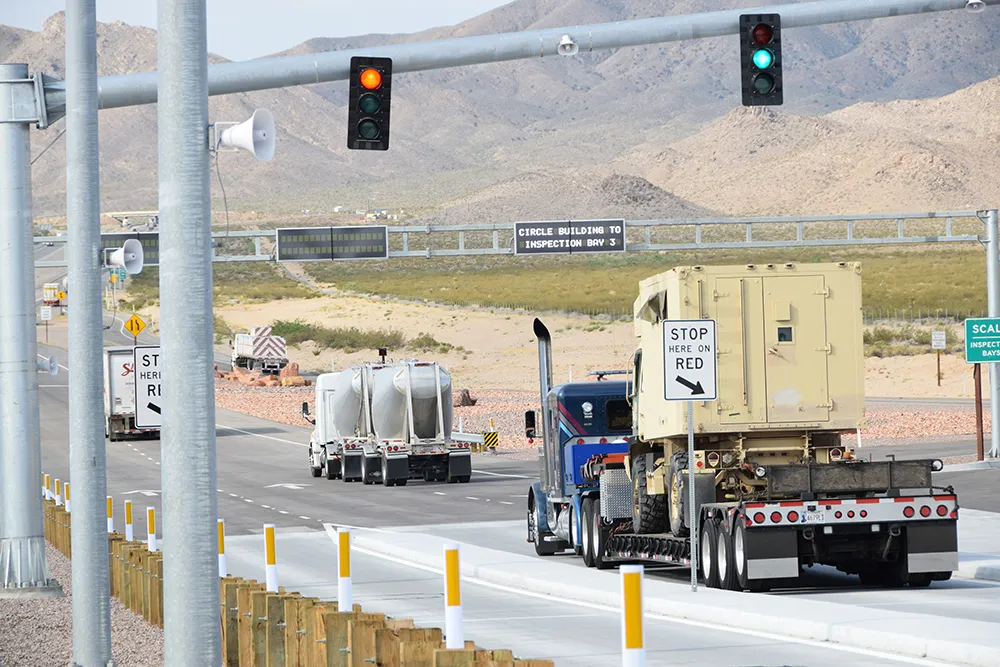An increasing number of UK commercial fleets are turning to in-vehicle technology for protection against the sharp rise of insurance fraud, according to CCTV vehicle company, Vision Unique Equipment (VUE).
Latest figures from the Association of British Insurers reveal insurance fraud is at a record high, reaching US$2.18 billion in 2013, with US$1.3 billion of fraudulent claims attributed to car insurance. ‘Crash for cash’ car insurance scams were identified as the main contributor to a 34 per cent rise
June 9, 2014
Read time: 2 mins
An increasing number of UK commercial fleets are turning to in-vehicle technology for protection against the sharp rise of insurance fraud, according to CCTV vehicle company, 7795 Vision Unique Equipment (VUE).
Latest figures from the Association of British Insurers reveal insurance fraud is at a record high, reaching US$2.18 billion in 2013, with US$1.3 billion of fraudulent claims attributed to car insurance. ‘Crash for cash’ car insurance scams were identified as the main contributor to a 34 per cent rise on the number of false motoring claims.
Glen Mullins, managing director of VUE, said: “Insurers and fleet owners are increasingly looking to technology to tackle the escalating problem and many insurers now insist on CCTV in the fleets they insure. This has led to unprecedented levels of demand for in-vehicle CCTV, particularly from large commercial fleet owners who are often seen as easy targets for fraud.”
VUE has seen the number of commercial fleets using CCTV technology more than double.
He added: “Many crash for cash’ fraudsters have witnesses on hand to claim that the crash was the other driver’s fault, enabling them to make an insurance claim for the damage, as well as whiplash injuries. CCTV technology is the only way to prove what actually happened.
“Front and rear facing CCTV recording cameras allow insurance companies to challenge fraudulent claims and offer protection for drivers who could otherwise be blamed for non-fault accidents.
“CCTV technology from VUE is designed to record the events leading up to an accident and, crucially, the aftermath of a collision even with the engine switched off, can be used as court-admissible event. CCTV systems not only prove the cause of an accident but also record the speed at impact and how many people were involved.”
Latest figures from the Association of British Insurers reveal insurance fraud is at a record high, reaching US$2.18 billion in 2013, with US$1.3 billion of fraudulent claims attributed to car insurance. ‘Crash for cash’ car insurance scams were identified as the main contributor to a 34 per cent rise on the number of false motoring claims.
Glen Mullins, managing director of VUE, said: “Insurers and fleet owners are increasingly looking to technology to tackle the escalating problem and many insurers now insist on CCTV in the fleets they insure. This has led to unprecedented levels of demand for in-vehicle CCTV, particularly from large commercial fleet owners who are often seen as easy targets for fraud.”
VUE has seen the number of commercial fleets using CCTV technology more than double.
He added: “Many crash for cash’ fraudsters have witnesses on hand to claim that the crash was the other driver’s fault, enabling them to make an insurance claim for the damage, as well as whiplash injuries. CCTV technology is the only way to prove what actually happened.
“Front and rear facing CCTV recording cameras allow insurance companies to challenge fraudulent claims and offer protection for drivers who could otherwise be blamed for non-fault accidents.
“CCTV technology from VUE is designed to record the events leading up to an accident and, crucially, the aftermath of a collision even with the engine switched off, can be used as court-admissible event. CCTV systems not only prove the cause of an accident but also record the speed at impact and how many people were involved.”








